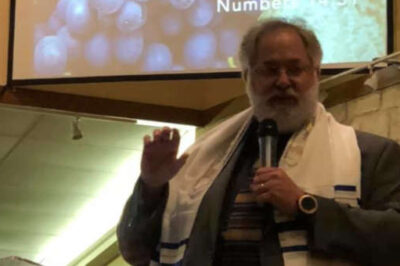The Bible provides within its pages many important lessons for G-D’s children. As we read the history of Israel, we see on page after page G-D instructing His people in how to live their lives.
G-D established marriage and family with Adam and Eve. We learn about worship, offerings, love and hatred through the story of Cain and Abel. That lesson continues as we read about Noah and the Tower of Babel. We continue to learn about family, community and nations through Abraham, Isaac and Jacob.
As Israel leaves Egypt, we read of the rebirth of the Hebrew people as a sovereign nation and the establishment of the Aaronic Priesthood. G-D, in His Word, established an organized priesthood or ministry team whose purpose was to assist the rest of G-D’s people in their worship of G-D. The establishment of the priesthood or ministry brought about new lessons for the people of G-D, some of which the body of believers are still trying to learn today.
As believers today, we are still wrestling with the same issues about ministry that the children of Israel wrestled with thousands of years ago. When Aaron was chosen to be the high priest, his calling was challenged by Korach, or Korah, and his followers. The words of Korah’s from Numbers 16:3 (TLV) echo through time:
“They assembled against Moses and Aaron. They said to them, “You’ve gone too far! All the community is holy—all of them—and Adonai is with them! Then why do you exalt yourselves above the assembly of Adonai?”
Korah and his followers were caught in the same snare that catches too many people today. This deadly trap can become a snare not only to congregation members, but to leaders also. Let me try to explain. The body of Messiah is a unique entity, one where everyone is the exactly the same, while at the same time, everyone is different. In the body of Messiah, there is no male or female, and no Jew nor Greek. Yet at the same time there are biblical distinctions for men and women and Jews and Greeks. Within G-D’s sovereign and perfect design, G-D made us all equal, or as Korah said, “All of the community is holy,” and yet G-D also raised up leaders such as Moses, Aaron, David, Paul, Jacob and whoever is the rabbi or pastor of your congregation today.
It is this strange dichotomy that Korah struggled with and one that we, too often, struggle with today. The reason we still fight this same fight today that Korah fought way back in the book of Exodus is because we have allowed the same spirit of jealousy to take root. Congregants get jealous of their leader’s position, and leaders get jealous when they feel their position is being challenged. Neither of these things should happen, but too often they do, with the result being either a split congregation or a leader that in fact does exalt himself above the role G-D called him to serve.
The answer to the problem is found within the Torah in the very place where G-D first established the priesthood. Take a look at Exodus 28:1:
“Bring your brother Aaron near with his sons from among Bnei-Yisrael, so that they may minister to Me as kohanim—Aaron and his sons Nadab and Abihu, Eleazar and Ithamar.”
Notice the wording as Aaron is ordained by G-D to minister as a Kohen (priest): “Bring Aaron your brother … from among Bnei-Yisrael (children of Israel)…” In His wisdom, G-D told Moses that ministers within the people of G-D would be from among the people. Ministers do not become outside of the body; they remain among the body. They were always to be equal in community relationship, while at the same time, fulfilling the unique intercessory role of ministry.
If we ever learn this lesson, our congregations will welcome the leadership of our rabbis and pastors because they will understand that every rabbi or pastor is simply the sheep leading the way. And every rabbi or pastor will serve in full accountability as an equal sheep of His pasture and not as some kind of a royal monarch who barks commands with a “do as I say, not as I do” attitude. {eoa}
Eric Tokajer is the author of Overcoming Fearlessness, What If Everything You Were Taught About the Ten Commandments Was Wrong?, With Me in Paradise, Transient Singularity, OY! How Did I Get Here?: Thirty-One Things I Wish Someone Had Told Me Before Entering Ministry, #ManWisdom: With Eric Tokajer, Jesus Is to Christianity as Pasta Is to Italians and Galatians in Context.
Read articles like this one and other Spirit-led content in our new platform, CHARISMA PLUS.








Leave a Comment
You must be logged in to post a comment.